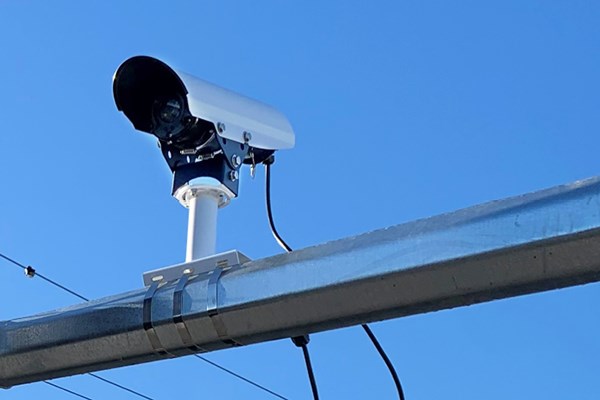The City of Richmond could possibly go to court to see if they can over-rule the privacy commissioner and install high-resolution intersection cameras to help solve crimes.
The city already has cameras installed at 110 intersections to monitor traffic.
When city council originally installed these cameras about three years ago, the privacy commissioner said they needed to be set at low-resolution for privacy reasons.
This means the cameras can’t capture faces or licence plates.
City council is now asking for a feasibility study on high-definition intersection cameras as well as getting a pre-emptive court order to support them, given the privacy commissioner’s ruling.
The original motion from Coun. Alexa Loo was to upgrade the cameras to allow them to capture high-definition footage. This, however, isn’t possible and a whole new camera system - with five cameras per intersection - would be needed to replace the current ones.
The quality of the current traffic intersection camera footage is “of limited usefulness for law enforcement and investigative purposes,” reads a report to city council from city staff.
The Ultra HD system the city is looking into would cost about $6.55 million for 189 intersections. A partial installation – in city centre, Hamilton, West Cambie, Steveston and Bridgeport – would cost about $3.29 million.
It would also cost almost $400,000 per year to maintain the city-wide camera system, and about $200,000 for a partial implementation.
Coun. Laura Gillanders balked at the price tag, noting the original intention of the motion was to upgrade existing cameras.
“I don’t understand how we went from that to this,” Gillanders said, adding she thought staff should have come back from the original referral just saying “we are not able to upgrade the current cameras. End stop.”
“I think it’s insane that we’re going forward wanting this type of thing in our little city of Richmond that’s only in cities like New York and Dubai,” she added.
It’s “irresponsible” to spend this kind of money when there is a homeless crisis and climate crisis, especially given Richmond’s low rate of crime, she said.
Gillanders instead suggested the minister of public safety install cameras at key places such as the airport, the tunnel and on the highways.
“Why is Richmond going to be footing millions of dollars for cameras to solve a crime that might happen once every 10 years,” Gillanders said.
Coun. Michael Wolfe brought up a long list of concerns about the cameras such as data breaches that have occurred in other countries.
Furthermore, he said capturing images of people could turn into a “social credit program,” referring to systems that capture people’s actions and rate them.
He argued city council shouldn’t waste time and money on exploring this technology – including a “lengthy court case.”
“The Office of the Privacy Commissioner has ruled against this, but here we are again pushing back,” Wolfe said.
Coun. Kash Heed, however, said he wouldn’t entertain “conspiracy theories” about how the data would be hacked, adding there would be proper governance in place to ensure that didn’t happen.
Having these cameras, he said, would act as a deterrent to criminals.
“If we can deter that activity from happening in Richmond at the outset, by broadly explaining to everyone that we have this system in place in Richmond, and, guess what, if you want to commit crimes, don’t come to Richmond and do it,” Heed said.
He further noted Richmond isn’t the only city looking at installing this high-definition camera system.
In the report, city staff say they would change the standard operating procedures to include “judicial oversight,” that is, a warrant for any police request for information.
The images would be stored for 10 days.
Coun. Andy Hobbs said it was “mind-boggling” police can’t currently get licence plates and description of suspects going through intersections in Richmond.
“I think with the right kind of authorization from the court and with the right kind of policy oversight, I don’t think we need to worry about it impuning too much of our privacy and our personal information when you’re talking about very public places like intersections,” Hobbs said.
Mayor Malcolm Brodie said he’s spoken with the Solicitor-General Mike Farnworth “who I believe is fully in favour with the approach we want to take.”
The privacy commissioner, however, with whom Brodie has also spoken on the issue, seems to be “intractable” in his position.
Brodie said he doesn’t understand why private cellphone footage, or footage from dash-cams and private businesses are usable in court, but there’s a pushback on the city capturing video.
“Why all of a sudden because it’s local government that has a program, now we don’t trust it,” he said. “’It’s an incursion into our civil rights’ – I just don’t see it that way, not when you talk about the need to preserve public safety.”
In the end, city council voted to move forward with exploring the possibility of having these high-definition cameras. Wolfe and Gillanders voted against the motion.
Got an opinion on this story or any others in Richmond? Send us a letter or email your thoughts or story tips to [email protected].




